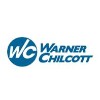
Endomicroscopy in Ulcerative Colitis
Ulcerative ColitisThis is a confirmatory, multicentric, prospective, randomized, controlled, single-blind study in subjects with long standing ulcerative colitis in clinical remission with indication for surveillance colonoscopy. The patients are examined with the PENTAX EC-3870CIFK and EC-3870CILK confocal colonoscopes either by chromoscopy-guided endomicroscopy with targeted biopsies or by standard endoscopy with random and targeted biopsies. The aim is to investigate whether chromoscopy-guided endomicroscopy has a higher sensitivity than standard endoscopy with respect to detection of intraepithelial neoplasia (IN) and to compare the proportion of patients with at least 1 IN detected by chromoscopy-guided endomicroscopy versus standard endoscopy.

Pilot Study of Green Tea Extract (Polyphenon E®)in Ulcerative Colitis
Mild to Moderately Active Ulcerative ColitisGreen tea consists of several components, with most research focusing on the polyphenol fraction. The polyphenol fraction(-)-epigallocatechin-3-gallate (EGCG)has been studied extensively as an anti-inflammatory agent as well as a preventative agent for cancer. It has been shown to effectively reduce the inflammation associated with animal models of inflammatory bowel disease. This clinical trial will determine the ability of EGCG, in the form of Polyphenon E®, to treat patients with mild to moderately severe ulcerative colitis.

Assessing the Safety/Efficacy of Asacol® Given Every 12 Hours to Children and Adolescents With Active...
Ulcerative ColitisThe overall objective of this study is to assess the safety and efficacy of high dose and low dose Asacol administered as 400 mg delayed-release tablets given every 12 hours for 6 weeks to children and adolescents with mildly-to-moderately active ulcerative colitis.

Budesonide Treatment for Lymphocytic Colitis
Microscopic ColitisThe purpose of this study is to determine whether orale budesonide is effective in the treatment of lymphocytic colitis

Mesalazine 4g Once Daily Versus 4g in Two Divided Doses in Active Ulcerative Colitis.
Ulcerative ColitisThe purpose of this study was to demonstrate that mesalazine 4g orally per day once daily (QD) is non-inferior to the reference regimen, mesalazine 4g per day in two divided doses (BID) (2g x 2 per day), in patients with active ulcerative colitis (UC) treated for 8 weeks, in terms of remission evaluated with the Ulcerative Colitis Disease Activity Index (UC-DAI) score and defined as less than or equal to 1. Both groups (4g QD and 2gx2) received an enema containing 1g of mesalazine at bedtime during the initial 4 weeks. Participants in remission at week 8 received an additional 4 weeks of maintenance therapy with 2g oral mesalazine once a day. Participants who did not achieve remission at Week 8 completed the study at week 8.

Cannabidiol for Inflammatory Bowel Disease
Crohn's DiseaseUlcerative ColitisThere are many anecdotal reports about improvement of Inflammatory bowel diseases (IBD) with cannabis smoking. The most effective anti inflammatory compound known today is cannabidiol. cannabidiol can be extracted from the cannabis plant, it has no central effect and is fat soluble so it can be given as drops in oil. Doses of up to 500mg did not cause any side effects. The aim of the proposed study is to examine in a double blind placebo controlled fashion the effect of cannabidiol on disease activity in patients with IBD.

Propionyl-L-Carnitine in Ulcerative Colitis
Ulcerative ColitisThe purpose of this study is to determine whether Propionyl-L-carnitine administration may ameliorate the illness in patients affected by mild to moderate ulcerative colitis already in treatment with one of the standard treatments (corticosteroids excluded).

A Study To Investigate The Safety And Efficacy Properties Of PF-00547659 In Patients With Active...
ColitisUlcerativestudy to investigate the safety and efficacy properties of PF-00547659 in patients with active ulcerative colitis

Efficacy and Safety of Asacol™ 4.8 g/Day (800 mg Tablets) for the Treatment of Active Ulcerative...
Ulcerative ColitisThe primary objective of the study is to determine the efficacy of Asacol™ 4.8 g/day (800 mg tablets) to induce clinical and endoscopic remission after 6 weeks of treatment compared to placebo in subjects with active ulcerative colitis (UC).

Trial of Mesalamine for the Treatment of Active Microscopic Colitis
Microscopic ColitisDiarrheaSubjects must be 18 years old and older, have diarrhea and microscopic colitis. Pregnant or nursing females are excluded. They can't have other untreated diarrheal conditions. Subjects will receive medication for 8 weeks, followed by sigmoidoscopy with biopsies. The subjects will be monitored weekly. A pathologist will review pre and post treatment biopsies. Subjects that show improvement will be followed for 4 weeks post medication.
